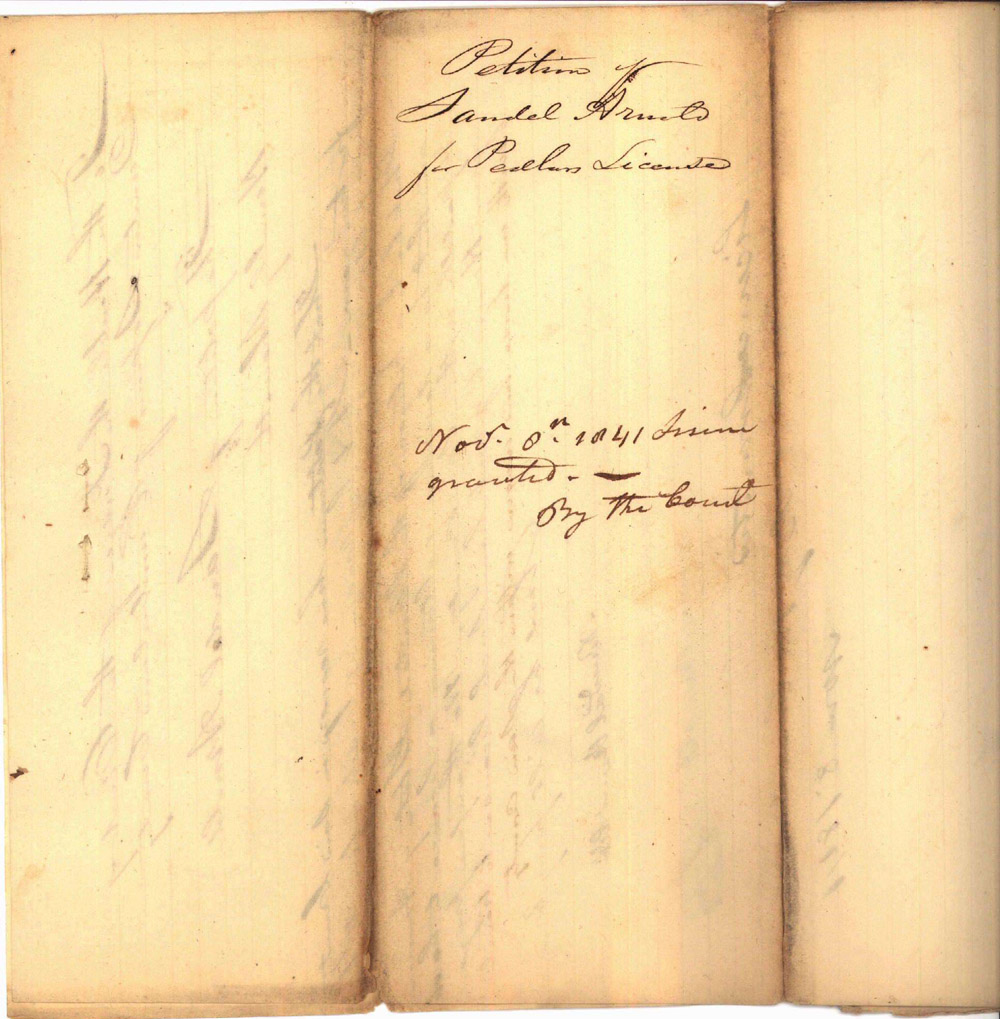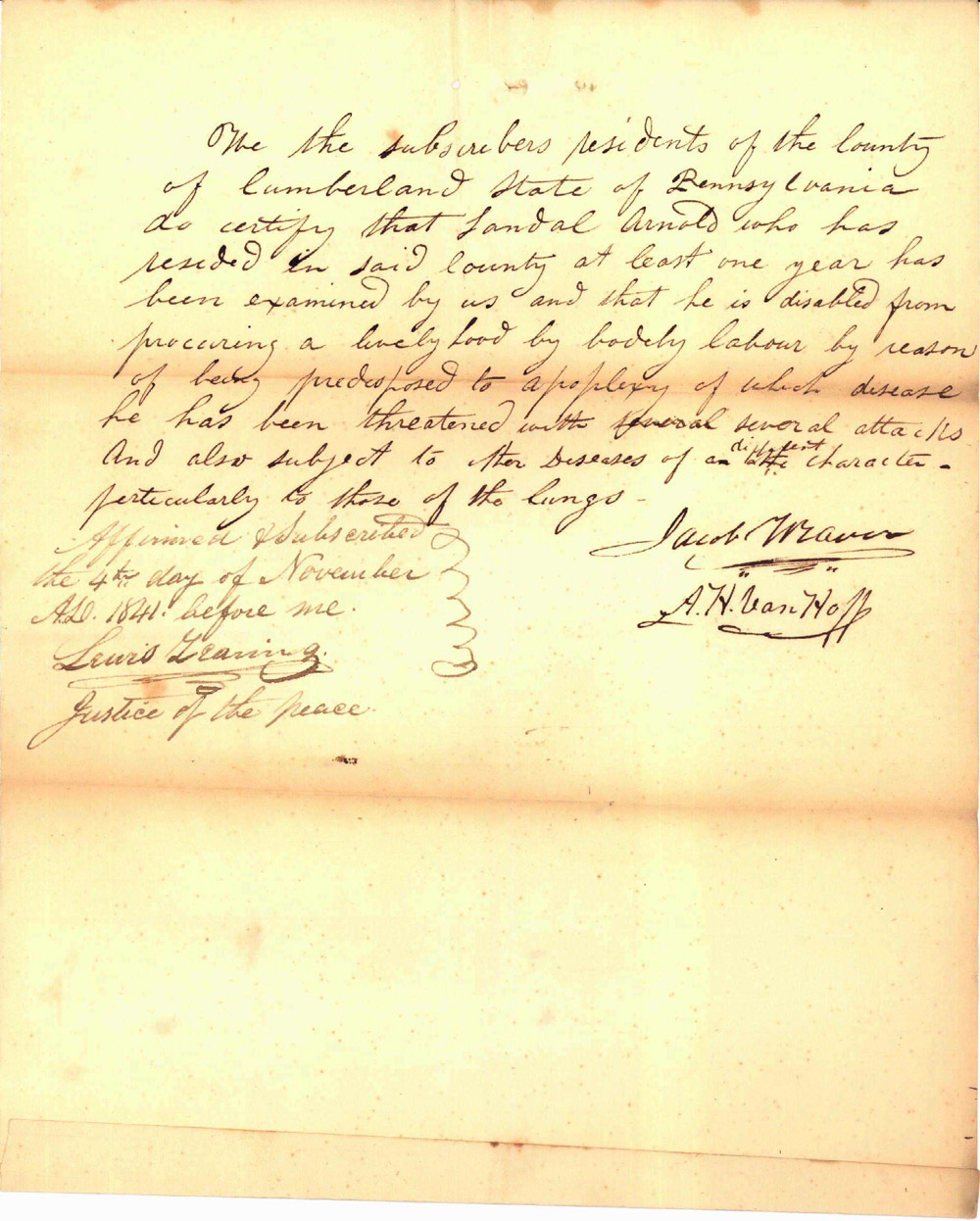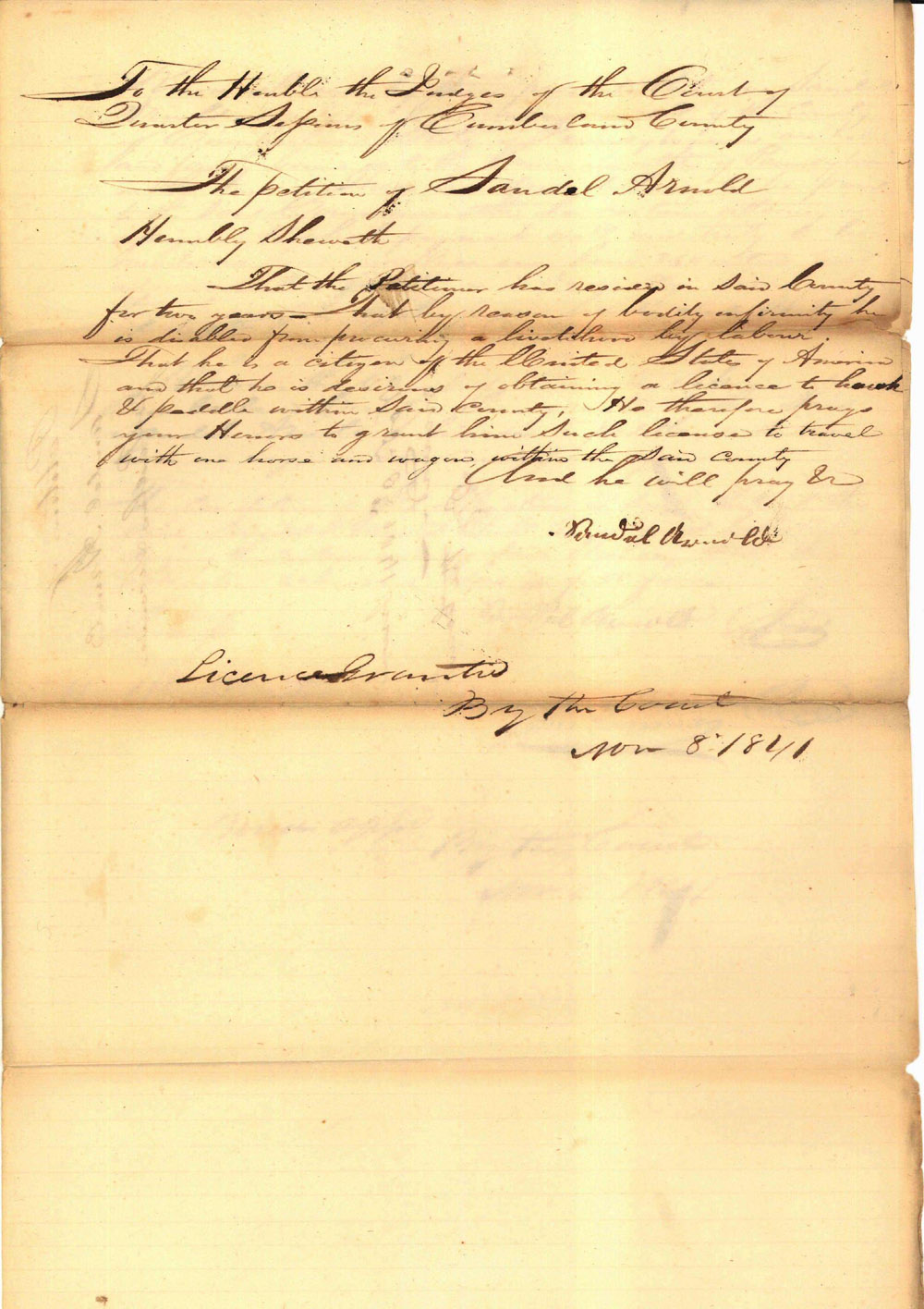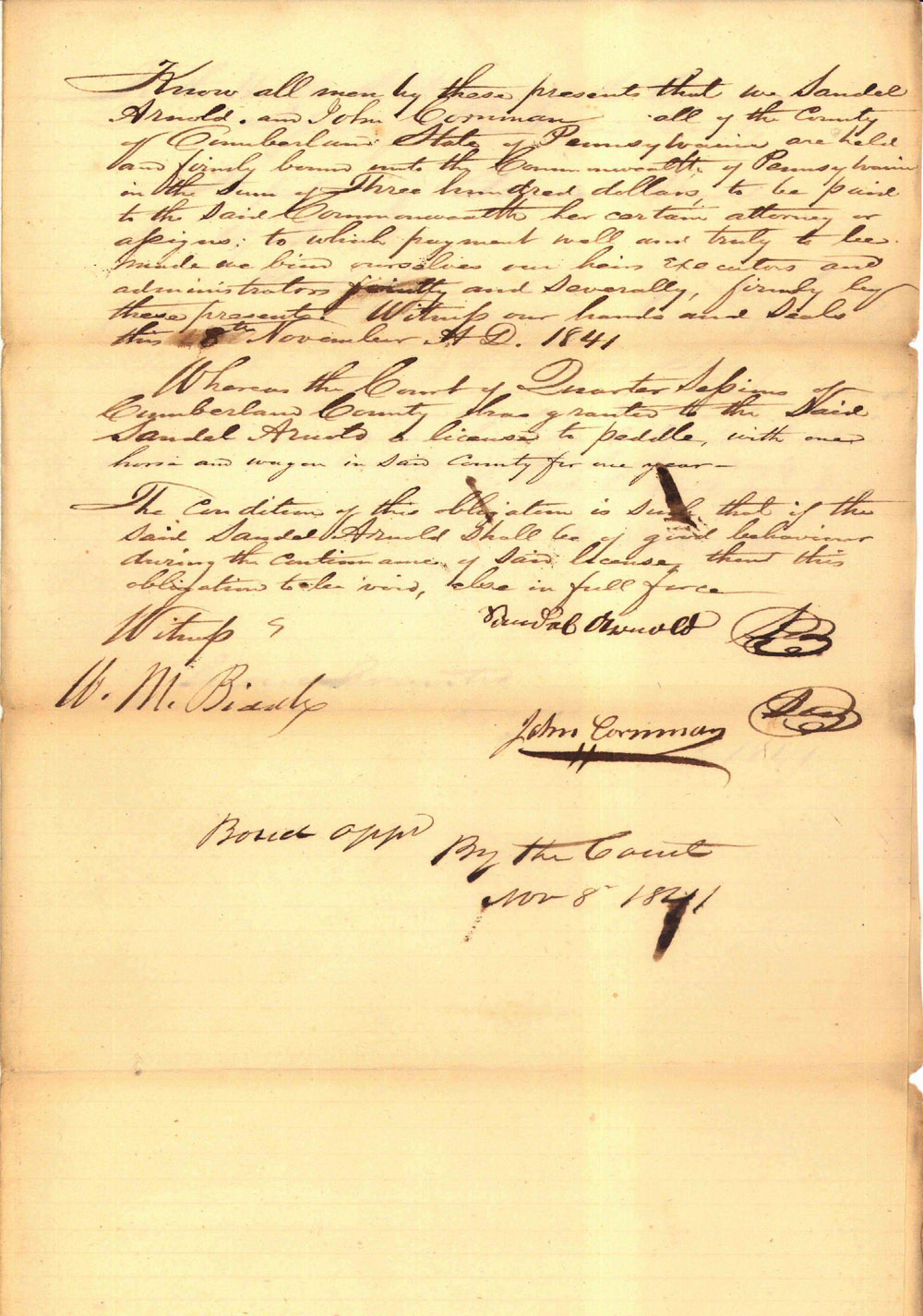In April 1839, Sandel Arnold applied to the authorities in Wurttemberg, Germany to immigrate to America.[1] Two years later he was peddling goods out of his wagon to the residents of Cumberland County.
Sandel Arnold was born in 1790 in Jebenhausen in the Goppingen District of (Württemberg) Germany. He was part of a large migration of German Jews to America in the nineteenth century. Like many Jewish men, he started business as a peddler.
“Americans in the hinterlands had little access to finished goods of all sorts…Jewish men overwhelmingly came to these remote areas as peddlers, an occupation that required little capital for start up and that fit the life of a single man. Jewish immigrant men would load themselves up with a pack of goods…and then embark on a journey by foot, or eventually, if a peddler succeeded, by horse and wagon. So widespread was Jewish peddling, that in 1840, 46% of all Jewish men made a living that way, and by 1845 the number climbed to 70%.”[2]
Arnold arrived at the Port of Philadelphia in 1839.[3] He declared his intent to become a citizen on September 7, 1839,[4] and by 1840, he and his family were living in Mechanicsburg, Pennsylvania. Simon Arnold, also born in Württemberg, had immigrated to America in 1834, and by 1840 was also living in Mechanicsburg. There is little doubt that the men were related. Simon, like Sandel, would move his family to Philadelphia in the 1860s.
Sandel Arnold applied for, and received, his first peddler’s license in Cumberland County in November 1841.[5] According to Pennsylvania law,[6] a man would only be granted a license if he could not earn a livelihood because of a disability. He had to be a citizen, reside in the county for which he was applying, get certified recommendations from two doctors about his disability, and be bonded. He then paid a fee for a license to sell either on foot, with a horse, or with a horse and a wagon.
Arnold peddled in the villages and countryside of Cumberland County for ten years, despite the fact that his doctors certified he had a predisposition to apoplexy. His son Samuel, prone to attacks of bronchitis and pneumonia, peddled from 1842 through 1849, and Abraham was licensed to peddle on foot in 1847 and 1849 even though he was disabled by frequent attacks of insanity.[7]
Sandel Arnold was sixty years old in 1850, the last year that he was licensed to peddle. He was still living in Mechanicsburg, and the 1850 U. S. Census showed that his household consisted of his wife Babit, sons Samuel, aged 24, and Abraham, aged 18, both peddlers.[8] All of them, including Elizabeth, aged 25, and Mary, aged 21, were born in Germany. Joseph, aged 8, and Siras (Cyrus), aged 4, were both born in Pennsylvania.
By 1860, Arnold and his family were living in Carlisle where he worked as a clothier.[9] During the Civil War, Arnold moved his family to Philadelphia. Internal Revenue Excise records for 1864 show that he lived at 813 Noble Street, and that he was taxed for a gold watch.[10] It is likely that Arnold belonged to the Philadelphia congregation of Rodeph Shalom.[11] He was an 82-year-old widower when he died in Philadelphia on November 14, 1872 and was buried in the German Hebrew Cemetery.[12]
Sandel Arnold was one of several German Jewish immigrants who were licensed to peddle in Cumberland County in the 1840s. Their documents can be seen on the Cumberland County Archives website at http://ccweb.ccpa.net/archives/Inventory.aspx?PSID=532.



